




| Ebrechtella tricuspidata (Fabricius, 1775) |





|
|
Scientific name: Ebrechtella tricuspidata (Fabricius, 1775) Common name: Other names: Old scientific name: Misumenops tricuspidatus. French name: Thomise à trois taches Order: Araneae Family: Thomisidae Size: Between 2.5 and 3.5 mm for males and between 5 and 6 mm for females. Biotope: Mainly on flowers and on low growing vegetation. Web: No web, spiders of this family are used to lying in wait to chase preys. Observation period: You can observe adults from May to August. Geographic area: Europe, Asia. |
Ebrechtella tricuspidata is one crab spider species. There is an important sexual dimorphism. On males, the four fore legs are dark brown with paler rings. They are much longer than the other legs. The cephalothorax is pale brown with two lateral dark brown stripes. The hind legs, which are shorter, are almost translucent green. The upper side of the abdomen is pale green with white marks on the outer margin and dark green lines in the centre. The under side is dark brown. On females, the legs and the cephalothorax are pale green. The four fore legs are much longer too. This is one typical characteristic of the crab spiders which enables them to walk in almost all directions. The abdomen, which is larger than the males' one, is white. It can show three brown reddish marks resembling a face. There is a possible confusion of the female with Diaea dorsata which is mainly found sitting on leaves on woodland edges or in bushy places. Diaea dorsata shows a well marked, oval-shaped, beige or brown patch on the upper side of the abdomen. |
| [To know more about the Ebrechtella tricuspidata] [Next picture] [Top] |
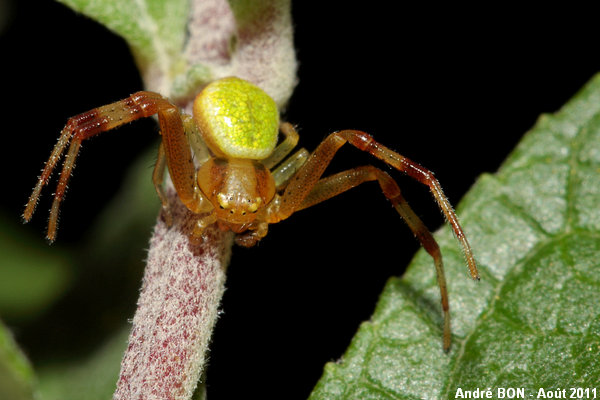
|
Here is one male Ebrechtella tricuspidata. This spider is easy to tell apart but it is not often seen because of its small size. |
| [To know more about the Ebrechtella tricuspidata] [Next picture] [Previous picture] [Top] |
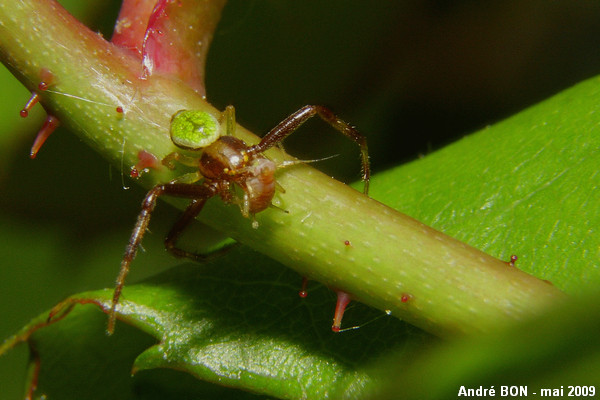
|
I have tried to take pictures of Lady Beetles while they were feeding on aphids on my Rose bushes. I have not been able to take a single picture because of the continuous wind. Then I saw this spider close to a large stem, in a more stable place. I have been to approach it and take one picture. Rose aphids (Macrosiphum rosae) are not only eaten by Lady Beetles. This male Ebrechtella tricuspidata will have aphid for lunch today. |
| [To know more about the Ebrechtella tricuspidata] [Next picture] [Previous picture] [Top] |
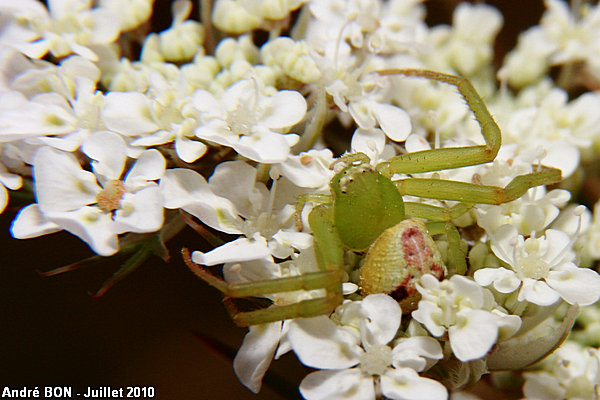
|
I have observed this Ebrechtella tricuspidata on an umbelliferae flower on a woodland edge. This spider species is rather easy to recognize, though I had first thought to Diaea dorsata before noticing my error. The mark on the upper side of the abdomen does not let any doubt. This one is a female. Females greatly differ from males! |
| [To know more about the Ebrechtella tricuspidata] [Next picture] [Previous picture] [Top] |
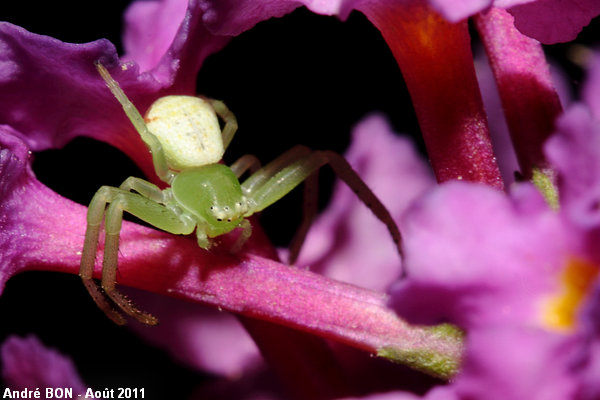
|
I have observed this female on Buddleia flowers. |
| [To know more about the Ebrechtella tricuspidata] [Previous picture] [Top] |
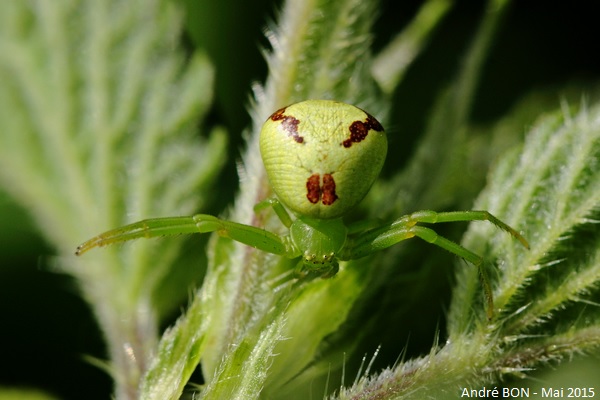
|
Here is one female with the typical three spots on the abdomen. It seems that we can guess the shape of human face, do you agree? |